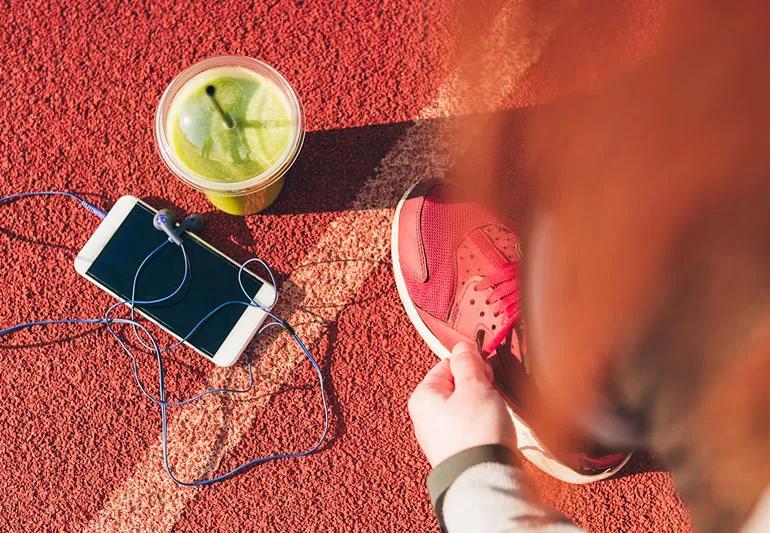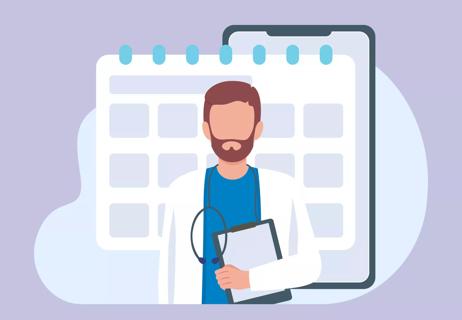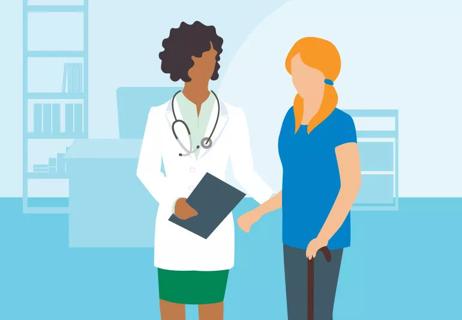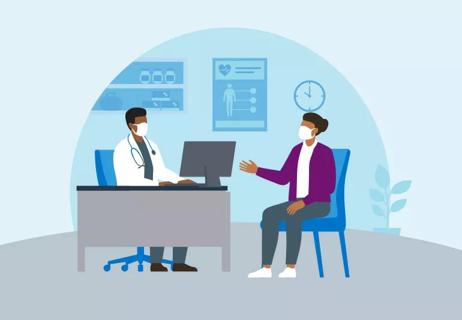Smart choices will take you far

Health is wealth. This common saying holds a lot of weight because it has truth behind it.
Advertisement
Cleveland Clinic is a non-profit academic medical center. Advertising on our site helps support our mission. We do not endorse non-Cleveland Clinic products or services. Policy
But what exactly is disease prevention and how can you prevent diseases from happening? Integrative medicine physician Irina Todorov, MD, offers nine ways to prevent diseases and how to take care of yourself so you can live your healthiest, best life.
“For good health and disease prevention, avoid ultra-processed foods and eat homemade meals prepared with basic ingredients,” says Dr. Todorov.
A study published in 2019 concluded that consumption of more than 4 servings of ultra-processed food was associated with a 62% increased hazard for all-cause mortality. For each additional serving, all-caused mortality increased to 18%. These foods can cause chronic inflammation, a normal bodily process gone awry that can contribute to heart disease, diabetes and even cancer.
Ultra-processed food include:
“It’s crucial to read food labels carefully,” warns Dr. Todorov. “Most foods that come in a package have more than five ingredients or have ingredients that you cannot pronounce. Many foods labeled as diet, healthy, sugar free or fat free can be bad for you.”
What do all healthy diets have in common? They consist of fruits and vegetables, beans, lentils, whole grains like quinoa, brown rice and steel-cut oats, nuts and seeds and healthy oils like extra-virgin olive oil.
Advertisement
“A great example of a healthy eating pattern is the Mediterranean diet,” says Dr. Todorov. “Talk to your doctor or dietitian to help create a meal plan that works for you.”
When checking your cholesterol, your test results will show your cholesterol levels in milligrams per decilitre. It’s crucial to get your cholesterol checked because your doctor will be able to advise you on how to maintain healthy levels, which in turn lowers your chances of getting heart disease and stroke.
Do you have high blood pressure? Even if you don’t think so, keep reading. Based on data published from the Centers for Disease Control and Prevention (CDC), about 45% of adults in the United States have hypertension defined as systolic blood pressure, diastolic blood pressure or are taking medication for hypertension.
Normal blood pressure is defined as blood pressure <120/80 mmHg. Having hypertension puts you at risk for heart disease and stroke, which are leading causes of death in the United States.
Even small weight loss can help manage or prevent high blood pressure in many overweight people, according to the American Heart Association.
“Start off slow and find an activity you enjoy,” says Dr. Todorov. “That can make a big difference in both your blood pressure and health.”
Throw away any common misconceptions about exercising like that it has to be in a gym or a structured environment. Frequency (how often), intensity (how hard) and time (how long) are what matter the most.
“Start where you are and gradually increase your physical activity,” says Dr. Todorov. “My motto is some exercise is good but more is better.”
Taking 10,000 steps a day is a popular goal because research has shown that when combined with other healthy behaviors, it can lead to a decrease in chronic illness like diabetes, metabolic syndromes and heart disease. Exercise does not need to be done in consecutive minutes. You can walk for 30 to 60 minutes once a day or you can do activities two to three times a day in 10 to 20 minute increments.
“There are so many different options for exercise available to us today,” says Dr. Todorov. “Take advantage of free gym and app trials, YouTube videos, resources from your local library and virtual gym classes. Walking in the park adds the benefit of spending time in nature.”
“Dare to be different from the average American, who is more likely to have obesity than adults in any other developed nation,” says Dr. Todorov.
To see if you are at a good weight for your height, calculate your body mass index (BMI).
Advertisement
If you have overweight or obesity, you are at higher risk of developing serious health problems, including heart disease, high blood pressure, type 2 diabetes, gallstones, breathing problems and certain cancers. Your doctor or nutritionist will be able to help you get on the right path towards your ideal body mass.
For good preventive health, cut back on soda, candy and sugary desserts, which can cause blood sugar to rise. If you have diabetes, this can damage your heart, kidneys, eyes and nerves over time.
Aside from understanding what makes your blood sugar levels hike up, the American Heart Association recommends eating smart, managing your weight, quitting smoking and moving more as measures to manage your blood sugar.
“In addition, having your blood pressure, blood sugar and cholesterol in a normal range decreases your risk for heart disease,” explains Dr. Todorov. “This lowers your risk of being diagnosed with cancer.”
If you smoke, there is probably no other single choice you can make to help your health more than quitting.
The CDC found that people who smoke are more likely than people who don't to develop heart disease, different types of cancer, stroke and more. Not only that, but smoking increases your risk of dying from cancer.
Advertisement
“People who smoke lose at least 10 years of life expectancy compared with people who never smoked,” says Dr. Todorov. “People who quit by age 40 reduce their risk of smoking-related death by 90%.”
Sleep restores us and has a huge effect on how we feel. If you have trouble sleeping, try to establish a sleep routine. A good sleep routine includes going to bed and waking up at the same time every day and avoiding eating heavy meals and alcohol. It’s important to stop screen time from your devices 2 hours before bedtime, too.
To wind down before bed, Dr. Todorov recommends:
“Research shows that daily exercise improves sleep in patients with insomnia, too,” says Dr. Todorov. “Try to avoid vigorous exercise 2 to 3 hours before bedtime.”
It’s no exaggeration: health screenings can save your life. They are designed to catch cancers and serious problems early for more successful treatment.
“There are screening recommendations for adults and women specifically, and varied screenings depending on your family history,” says Dr. Todorov. “Some screening recommendations have changed, so talk to your doctor.”
Advertisement
Making healthy lifestyle changes overnight isn’t realistic, but taking the necessary steps to ensure you’re staying on top of your health will put you ahead and help you be the healthiest you can be.
Learn more about our editorial process.
Advertisement

Signs are what your provider can see, but symptoms are what you feel or experience

Screenings and tests done during a wellness check can uncover hidden health issues

An annual physical exam is important for many reasons, including your chance to ask questions

From odors to colors, it’s more than OK to ask your doctor these questions

This iconic medical tool has an enduring role

Simple tips to make your visit more effective

It can offer you peace of mind and more information

Tips to help you get the most from your visit

The tropical fruit is a good source of antioxidants and vitamin C

Most people fall asleep within 10 to 20 minutes, but if your experience is different, adjusting your sleep schedule may help

Exploring your hidden side can lead to better understanding of what makes you tick